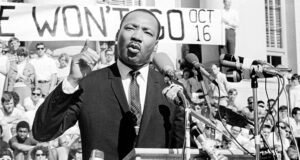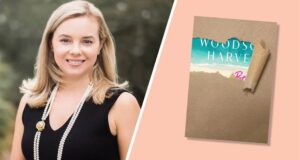As a retired nurse, Cathline DeWitt, 74, has spent a lifetime taking care of others. But when a bicycle accident left her husband paralyzed, wheelchair-bound and in need of constant assistance, she struggled to juggle a host of new responsibilities. Then Cathline discovered the healing power of carving out time for herself, and the simple habit that helps her find joy every day.
Thanks for checking in on me! typed Cathline DeWitt as she sent a quick message to her walking buddies before clipping on her Chihuahuas’ leashes and lacing up her sneakers. What once felt like a chore, after suddenly being the only one to exercise the pups several times a day, had now become a lifeline. It was important that Cathline take time to maintain her physical, emotional and mental well-being as a full-time caregiver to her husband following a devastating accident. Here, Cathline shares in her own words how she learned to adjust, accept and thrive—one step at a time.
“When I set out on the path of being a nurse at age 16, I knew that caring for others was my passion. And after retiring from nursing in 2012, I’ve continued to serve in volunteer roles. However, despite 58 years of training and hands-on care, I didn’t realize just how impactful self-care truly is—that it can actually save your life—until I was faced with becoming the primary caregiver for my beloved husband, Pat, following his traumatic brain injury in September of 2023.”
“When Pat left home that fateful day to go on a 60-mile bicycle ride, like he had hundreds of times before, I expected him to walk back through the door hours later, jubilant about his ride. Instead, I got a call that he was rushed to a hospital in critical condition. “Pat had suffered an accident that left him paralyzed on the right side. In an instant, our entire life was turned upside down.”
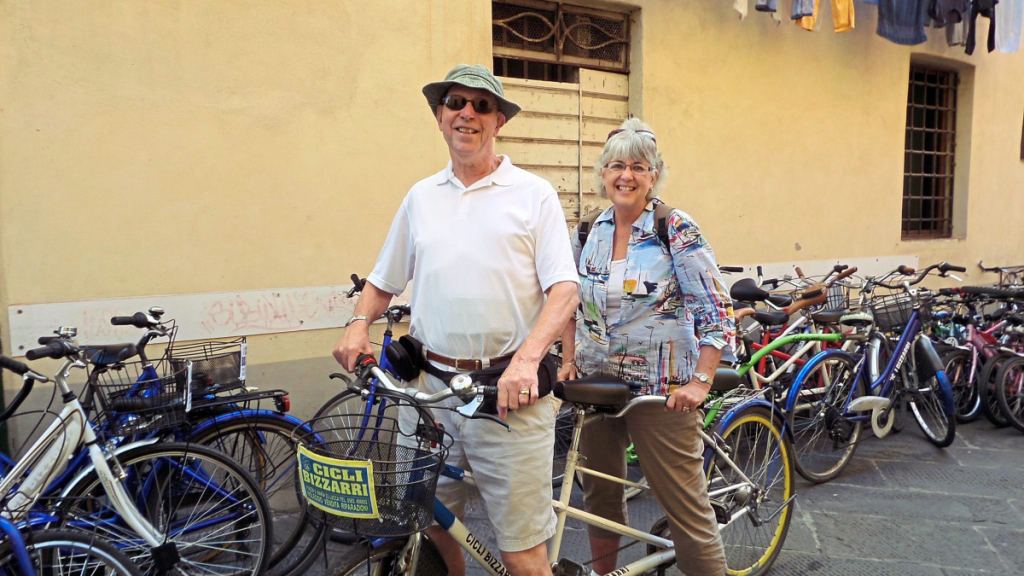
“Sitting vigil by his bedside for weeks in the hospital and then during four months in a rehab facility, I wrestled with fear and sadness knowing that he’d never walk again. Along with being his medical advocate and making accommodations in our home, I was also thrust into assuming every aspect of running our household—down to taking on his role of walking our dogs, Chessie and Izzy, several times a day, in all weather conditions.
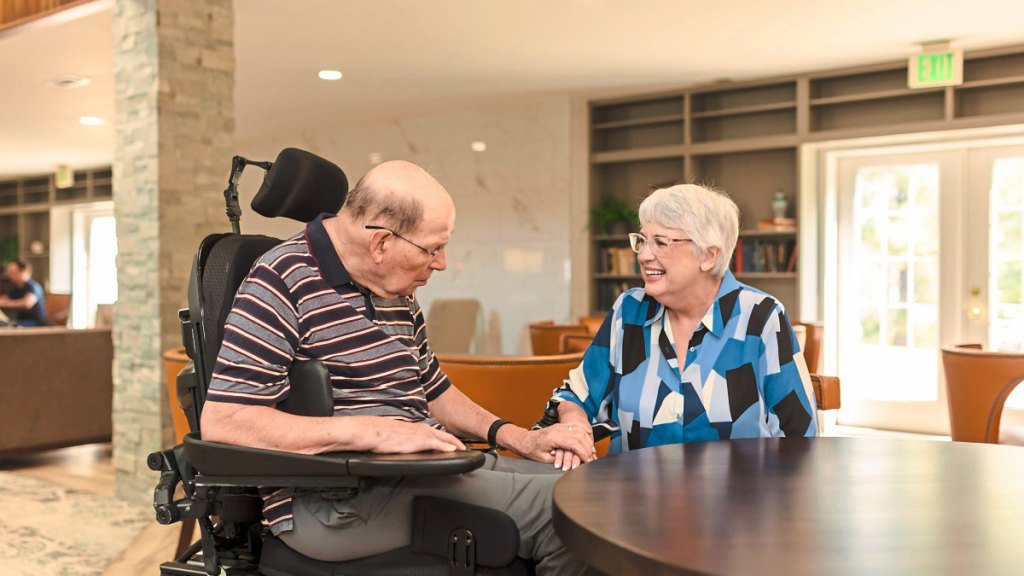
“My husband requires maximum assistance for all his needs, and I began to realize, Oh… this is my life now. I often felt alone on an island, without the love of my life to share conversation, movies or walks the way we used to. There is a real grief of losing the lifestyle you once knew and enjoyed. It also seemed impossible to meet my own needs and care for my loved one while actively grieving the loss of a loved one’s function or impending death.
“Following my husband’s accident, I received numerous thoughtful invites for meals with friends, but I couldn’t gather the emotional and physical energy to be social. Well-meaning friends would say what they thought I needed to hear like, ‘You need to eat. You need to get out of the house,’ which became smothering. I felt guilty for getting annoyed at those good intentions and found the most helpful thing was when someone simply said, ‘This has to be so difficult for you; I am here when you need me.’
“During one of those middle-of-the-night moments that loneliness and sadness took over, I was searching online and found support in the most unlikely of places: an online walking community called 99Walks. Ironically, the walking group helped me see that those jaunts with the dogs that once felt like a burden could provide surprising solace. So I would walk the dogs for at least 10 minutes a day—no matter the weather or season—and report back to the group. Going on walks and connecting with women not only became an important coping skill for me, it became my lifeline.
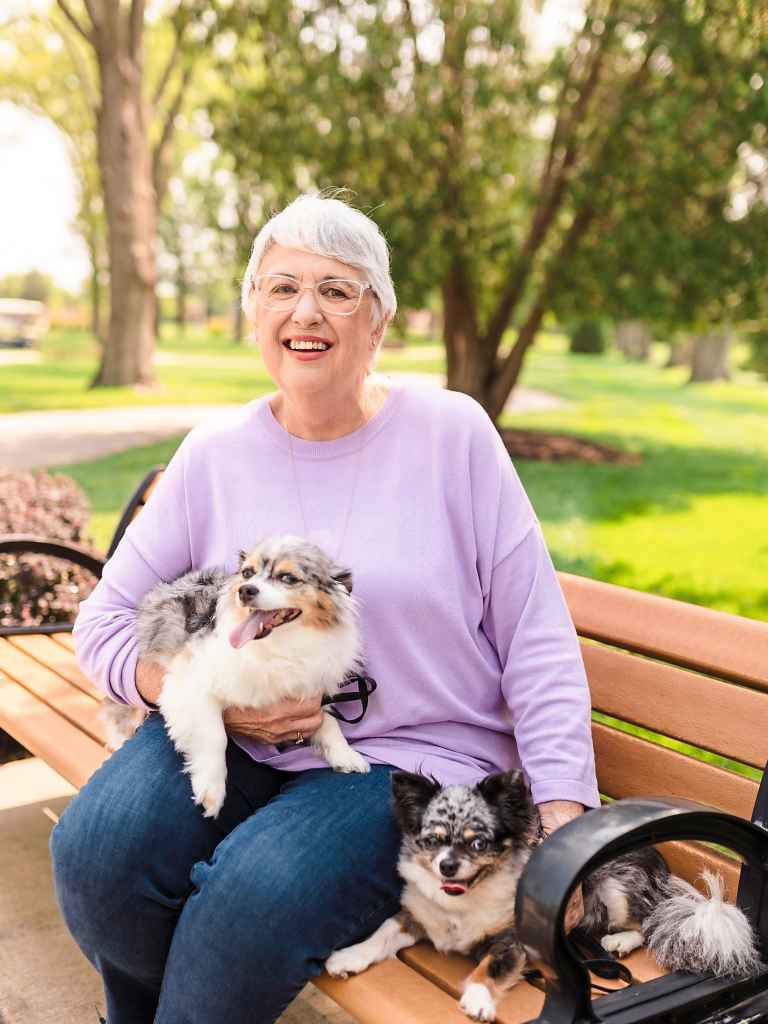
A step toward peace
“For many months, walking felt like the only place I could breathe, think and pull myself together. Even just a few minutes bolsters my physical and emotional strength to face the task of caring for Pat 24/7. The group’s accountability factor ensured I didn’t let my walking time take a back seat to my caregiving tasks. Sadly, 99Walks no longer has an online presence, but I still check in with my walking friends for encouragement. As I continue my walking journey that offers me peace amid my daily to-do’s, I carry with me a new understanding of the emotional and physical benefits of walking and the community I built.
“Recently, a close family member, who was also one of my dearest friends, passed away. I was so torn between being there for her husband and kids, and my need to be with my husband. I also needed to grieve her loss and felt both guilty and frustrated that I couldn’t do both. But I discovered when I feel overwhelmed or frustrated, my walks helped combat those negative emotions.
“My husband and I have had a wonderful 35 years together. Because I love and respect him, I want to care for him to the best of my ability. While there are different challenges and difficult emotions to each caregiving journey, the common factors are simply that it’s hard. During reflection on my walks, I’ve seen that caregiving is also a beautiful privilege. There’s a simple joy in being able to provide for loved ones and help them find comfort and navigate their own journey.”
Editors’ note: During the time between Cathline’s interview and publication, her husband, Pat, sadly passed away. Cathline still wanted her and Pat’s story to be told to help other caregivers. We send Cathline and her family our deepest condolences.



